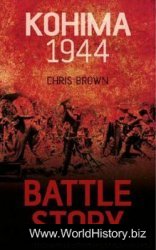Contrabands was the term used for fugitive slaves who crossed over Union army lines during the Civil War. Before the Union developed a coherent policy on emancipation, slave refugees were neither in bondage nor free, but somewhere in between, recognized legally as confiscated enemy property.
About a month after the Confederate attack at Fort Sumter, South Carolina, three slaves crossed the Union picket lines at Fortress Monroe, Virginia, where they offered their services to the Union army and sought protection from their masters. Thus began a spontaneous and grassroots effort by slaves across the South to escape bondage. Within a few months, thousands of slaves poured over Union lines. Wherever the army went, slavery seemed to disintegrate in the immediate vicinity. Because there were so many fugitive slaves in army camps, Union military leaders were forced to confront the future of slavery.
Gen. Benjamin Franklin Butler, the commander at Fortress Monroe, freed the first three slaves and put them to work as army laborers. Butler learned that Confederates used slaves to construct fortifications; thus, he declared that fugitive slaves were enemy property—in other words, “contraband of war.” Butler’s actions were some of the first steps toward emancipation. Nevertheless, the Union had not yet formulated a policy toward fugitive slaves. Other military officers, including Butler when he administered captured lands in Louisiana, returned runaways because they did not have a system to care for them.
Congress attempted to clarify the emerging problem of contrabands with the Confiscation Act of August 6, 1861. It stated that slaveholders forfeited their rights to any slave that had been employed by the Confederate military. While the law did not address emancipation, it did recognize the fact that slaves could be used as weapons of war. Consequently, it was in the best interests of the Union military to weaken the institution of slavery.
A preliminary and uncertain federal policy did not deter slaves from seeking their freedom, but Union forces were ill-equipped to deal with thousands of fugitive slaves. Male slaves were put to work, but the army had little to offer slave women and children. Northern benevolent associations rushed in food and clothing for the destitute, and teachers arrived to educate freed families in the contraband camps.
In 1862 Congress continued to refine its policy toward fugitive slaves and to inch ever closer toward emancipation. An article of war was added in March forbidding the army or the navy from returning fugitive slaves to their owners. Slavery was abolished in Washington, D. C., in April and in the U. S. territories in June. A second Confiscation Act passed on July 17, 1862, freed the slaves of any person who aided the rebellion and authorized the seizure and sale of any other property from disloyal citizens. On the same day, Congress recognized the labors of the contrabands at army camps. According to the Militia Act, any fugitive slave who worked for the military was freed, as was his or her family.
Lincoln and Union military leaders entered the Civil War with the desire to not interfere with the slave system in the South, but the slaves and the lengthening war forced the issue. More than 10,000 contrabands crossed Union lines in Virginia by mid-1863. Along the Mississippi River, similar large encampments of contrabands stretched the limits of Union supply lines. Crowded into unhealthy camps, thousands died from disease, exposure, and even starvation. In spite of the degradation, most refugees stayed in the camps. If they ventured from the protection of the Union lines, contrabands were subject to marauding guerrilla bands of Confederate soldiers or recapture by their owners.
Facing a humanitarian crisis, Union leaders began to develop a policy of refugee settlement on abandoned lands. Some were hired out to Unionist planters, while others were placed on U. S. government-mn PLANTATIONS on a wage-labor basis. After 1863, male contrabands were encouraged to enlist in the Union army. At the end of the war, Congress created the Freedmen’s Bureau to formally help ex-slaves make the transition to freedom.
Contrabands played a crucial role in forcing the Union to confront the issue of slavery and emancipation. As the war persisted, the value of fugitive slaves as military laborers and as soldiers helped to convince President Lincoln and Congress to emancipate all of the slaves. Unfortunately, far too many contrabands met an untimely death at disease-ridden camps, demonstrating the uncertainty that accompanied freedom.
See also Davis Bend, Mississippi, Freedmen’s COLONY; Emancipation Proclamation; Port Royal, South Carolina Experiment; Special Field Order No. 15.
Further reading: Louis S. Gerteis, From Contraband to Freedman: Federal Policy towards Southern Blacks, 18611865 (Westport, Conn.: Greenwood Press, 1973).
—Justin J. Behrend
Cooke, Jay (1821-1905) financier Known as “the financier of the Civil War,” Jay Cooke was the most influential investment banker of his day. Born in Sandusky, Ohio, to a prosperous family (his father was a lawyer, a businessman, and a politician), Cooke started his working life as a clerk in a dry goods store at age 14. In 1838 his brother-in-law offered him a similar position in Philadelphia, but after the company’s failure and a short stint as a hotel clerk, he moved back to Sandusky.
In 1839 Cooke began his long career in the banking business with a position at E. W. Clark & Company. His skills soon rapidly advanced him up the corporate ranks. By age 21, he was made a full partner in the firm. In 1844 he married Dorothea Elizabeth Allen, sister of the president of Allegheny College in Pennsylvania, where his brother Henry was a student.
Cooke went on to become a successful investment banker with E. W. Clark & Company, which helped to finance the Mexican-American War and a few railroad companies. The firm went bankrupt during the financial panic of 1857, and Cooke retired. The Civil War would soon provide new opportunities for him.
In 1861 as the war broke out, Cooke ended his brief retirement and opened his own firm, called Jay Cooke & Company. Vigorously and shrewdly marketing Civil War bonds, he made a great success of the firm. Using a patriotic advertising campaign, Cooke convinced Americans to invest in their government during the darkest days of the war. The money used to purchase these bonds helped to keep the war effort alive for the Union, particularly when resources were most desperately needed.
Following the war, Cooke expanded his investments into new ventures. The largest of these was the Northern Pacific Railroad, a new transcontinental railroad that was to run from the Great Lakes to the Pacific Ocean. Cooke needed to raise $100 million for the railroad, and he sought both American and European investors to back the scheme. Money was not easily forthcoming, and the investment quickly turned bad because there was not enough rail traffic or people along the line for the road to attract new investors. Cooke spent unwisely in order to keep the project alive, and on September 18, 1873, his company went bankrupt.
The failure of Jay Cooke & Company, which was the leading brokerage firm in the country in 1873, played an important role in ushering in the panic of 1873 and the depression that followed. Cooke afterwards spent a few years away from the world of banks and finance, only to return once more as an investor in silver mines and real estate in Minnesota. He proved to be a success a final time, purchasing, among other things, an estate near his adopted city of Philadelphia. He spent the last years of his life living with his daughter and her family after converting his estate into a school for girls.
Cooke’s influence extended far beyond his own lifetime. His innovations in investment banking and marketing of war bonds set precedents that resonated well into the next century.
See also economy.
Further reading: John Lewis Harnsberger, Jay Cooke and Minnesota: The Formative Years of the Northern Pacific Railroad, 1868-1873 (New York: Arno Press, 1981); Ellis Paxson Oberholtzer, Jay Cooke, Financier of the Civil War (New York: A. M. Kelley, 1968).
—Troy Rondinone
Cooper Union speech (February 27, 1860)
The Cooper Union speech was a significant political address made by presidential candidate Abraham Lincoln. In October 1859 James S. Briggs of the Young Men’s Republican Union invited Lincoln to deliver a speech to the political club at Henry Ward Beecher’s noted Plymouth Church in Brooklyn, New York. Lincoln, an Illinois attorney, was an aspirant for the party’s presidential nomination, and Union members were in search of a candidate to foil the presidential ambitions of New York senator William H. Seward. The Union’s political board included prominent newspaper editors William Cullen Bryant and Horace Greeley, both of whom staunchly opposed Seward’s candidacy. Briggs himself was the eastern manager of Salmon
P. Chase, another Republican presidential aspirant, who also sought to derail Seward’s aims. Lincoln gladly accepted the invitation, knowing his speech would attract national attention and help define the Republican position for the coming ELECTION.
The date was set for February 27, I860, although the venue was changed to Cooper Union, an educational institute for working-class people. Keenly aware of the importance of this platform, Lincoln thoroughly researched his speech by consulting Jonathan Elliott’s Debates. . . on the Federal Constitution and other sources that would justify and clarify the Republican stance on SLAVERY in the territories. He arrived in New York City by train on February 23, and four days later he strode into Cooper Union wearing a new and ill-fitting suit to lecture to a crowd of 1,500.
Lincoln’s oration, known as the Cooper Union speech, was brilliantly delivered and is regarded as a model of a articulate and politically effective oration. He began by attacking the positions of Democrat Stephen A. Douglas and Supreme Court justice Roger Taney. In contrast to their arguments, Lincoln’s research demonstrated that 31 of 39 delegates present in the Constitutional Convention of 1787 voted to allow Congress to regulate and thus restrict slavery in the territories. The founding fathers, Lincoln insisted, were opposed to the extension of slavery. After the ratification of the Constitution of the new federal Congress, with many of these same members present, voted to forbid carrying slaves into the new Northwest Territory; they did not, Lincoln underscored, pass the Bill of Rights’ Fifth Amendment (which guarantees due process of law) in order to bar CONGRESS from regulating slavery in new states and territories, as Taney had intimated. By making this point, Lincoln sought to assure Southerners that the Republican Party was conservative and simply wished to maintain the founding fathers’ traditional policy.
He also denounced the activities of abolitionist John Brown, who had carried out a bloody raid on the federal arsenal at HARPERS Ferry, West Virginia, to further his cause. Lincoln reassured Southern states of the party’s determination to protect slavery where it was clearly sanctioned by the U. S. Constitution. In an eloquent closing, he urged his fellow Republicans to stand together against pressure to abandon their antislavery platform. “Let us have faith,” Lincoln exhorted the crowd, “and that right makes might, and in that faith, let us, to the end, dare to do our duty as we understand it.” The speech was immediately hailed by Greeley in the New York Tribune, among other influential newspapers, and propelled Lincoln to the Republican Party nomination.
Further reading: John A. Corry, Lincoln at Cooper Union: The Speech That Made Him President (Philadelphia: Xli-bris, 2003); Harold Holzer, Lincoln at Cooper Union: The
Speech That Made Abraham Lincoln President (New York: Simon & Schuster, 2004).
—John C. Fredriksen




 World History
World History








